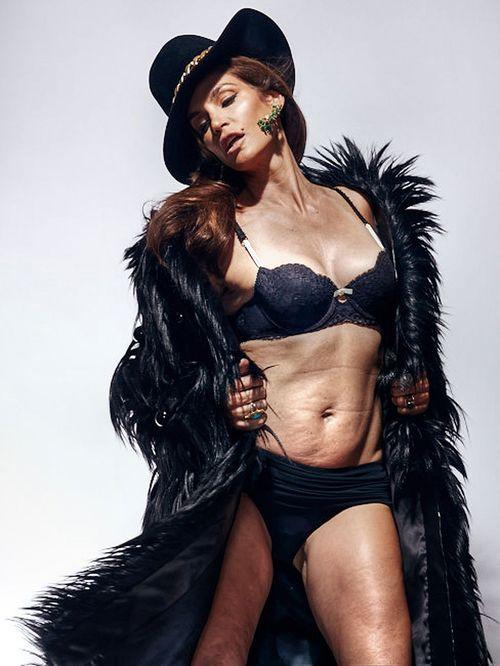Additionally, unretouched photos of supermodel Cindy Crawford were leaked from a foreign Marie Claire shoot recently. The reaction to this photo was less mixed: most were stunned at how great the 49-year-old mother of two looks without Photoshop. Of course, she usually is retouched, but her look sans Photoshop is not surprising in a bad way.
This new trend of Americans being opposed to heavily Photoshopping women in advertisements and on TV is on the rise. Regardless of whether or not the images receive positive or negative feedback, the common theme on all of them is why the women needed to be retouched to look "perfect" in the first place. Brands like Dove and Aerie already refuse to Photoshop their models, trying to boost the self-esteem of women and aiming to make them comfortable in their own skin. Hopefully these leaked photos will help other brands see the benefits of using "real" women in their ads. This could be a turning point in how women are viewed in the media in the US, and that's exactly what needs to happen.

I can see different sides to this argument. On one hand, it's great that companies, like Aerie and Dove as you mentioned, don't retouch their models. It shows everyday people as they appear, well, everyday and in turn that makes the models incredibly relatable to consumers. An opposing view would be that of idolation -- Models and spokespeople for products act as liaisons between a company, product, or personal image (such as Beyonce herself) and the general public. Upholding an image and being a "model" for people is how the whole industry got its start -- not saying that it's a good thing. Perfection is shown in advertisements to sell the product. It isn't that they're necessarily trying to sell perfection, it's that they're trying to sell a relationship or comparison between the product, the consumer, and the model. As Aerie makes their products relatable to consumers through a personal connection, other companies make their products relatable to consumers through a desire for a personal connection. This, however, could (and I believe that it does) come across as narcissistic and shallow.
ReplyDelete